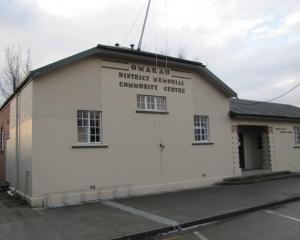The Maniototo community will have another chance to voice its opinion on the sticky issue of water fluoridation after its community board decided more consultation and disbursement of information was needed.
At its meeting this week, board members were expected to make a decision on whether or not to continue with their December 2011 resolution to fluoridate the Ranfurly drinking water supply.
They heard two submissions on the issue.
Former board chairman Richard Smith, of Naseby, said there were other things money could be spent on, such as roading.
Two members of the Southern District Health Board - clinical director of oral health Tim Mackay and medical officer of health Keith Reid - also addressed the board, and offered to host a workshop to discuss the issues surrounding fluoridation.
Board member Sue Umbers, who was the only member to oppose the December 2011 decision, said many people had approached her to say they disagreed with the introduction of fluoridation and it was her job as a board member to represent those people and their views.
It was ''quite a big step to dose everybody with this'' and while those in outlying towns such as Patearoa could choose to drink the fluoridated water or drink Patearoa water, those living in Ranfurly and on the town water supply would not have that choice, she said.
Board member Mike Summers questioned the validity of the last public vote, conducted in 2007.
Then, people from all over the district voiced their opinion with a relatively even split - 385 people for and 323 against; 110 people did not answer.
He said it was not clear where those votes had come from and he questioned whether equal weight should be given to votes from Ranfurly residents as to votes from outlying town residents. He also said it would affect people's rights because it would ''force someone to do something they don't want to do''.
Board member Diane Paterson said it did not matter where the votes came from as people from outside Ranfurly might send their children to any of the Ranfurly's education centres, where they could drink the water and therefore those people had a right to weigh in on the issue.
''I don't really see where the evidence is that there is a groundswell of people against this.
''Are we going to change a decision because of a few people niggling? The community has given us their trust that we will make a decision on their behalf.
''There's a silent majority out there that we haven't heard from ... whenever there's an issue we always hear a lot from the anti.''
The board resolved to leave the issue on the table and organise consultation. Central Otago District Council chief executive Phil Melhopt said that would likely happen in about June, after the annual plan consultation.












